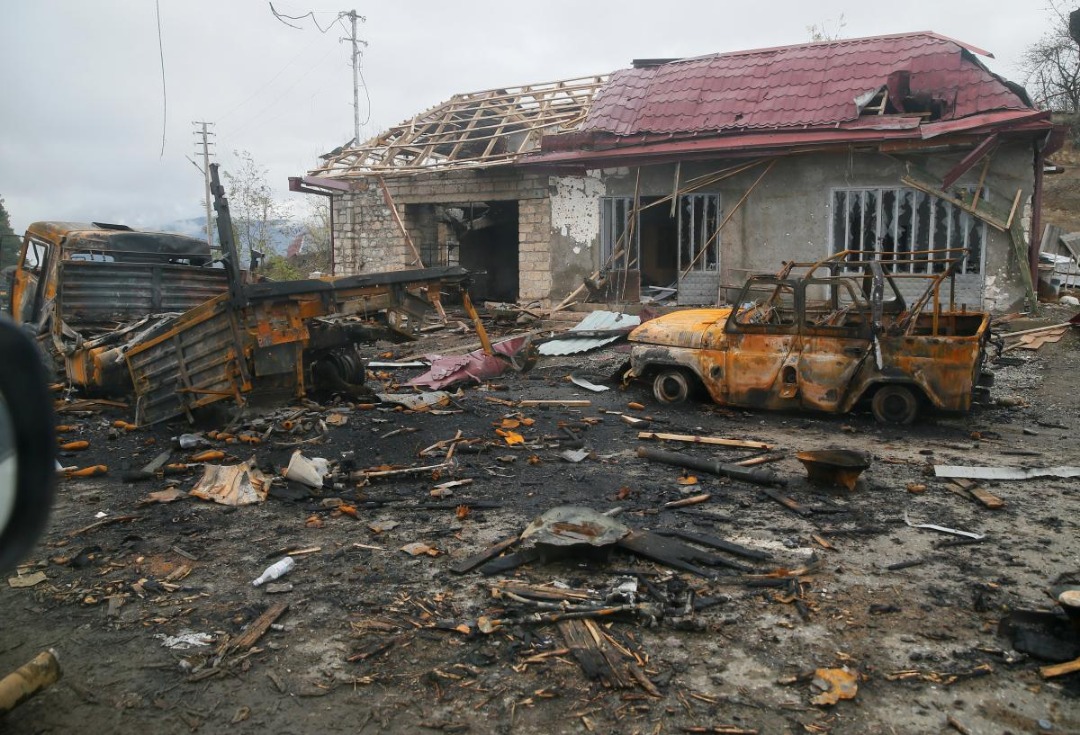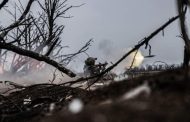Azerbaijan has taken control of part of the lands in Karabakh
He noted that the only question is how quickly the government will resign.
In Armenia, a change of government is likely to take place soon due to the surrender in the war with Azerbaijan over Nagorno-Karabakh.
This opinion was expressed by the expert of the International Institute for Democracy Yevhen Dyky on the air of Ukraine 24 channel. He noted that the only question is how quickly it will happen.
“It is very easy to make a prediction about the future Prime Minister of Armenia Nikola Pashinyan and his government. The only question is how soon this government will resign – whether it is a matter of days, weeks or months. But in general we can say that the change of government The government will not forgive the defeat in the war, although the big question is whether the Armenian government is to blame for the defeat. But in any case, someone should be responsible for such a painful defeat, and it is logical that the country’s leadership is to blame. ” He declared.
According to the expert, this is partly the fault of the government itself.
“In addition, there is what the government is really guilty of – the concealment of information about the situation during hostilities. And only then will the country learn that a catastrophe has been going on all this time … If people had been kept informed at least all the time, perhaps the attitude to the government would have been different, “he said.
Wild also told how the situation could turn out in five years, when it is time to renegotiate the peace treaty.
“Anything can happen. A lot can change in Armenia, Azerbaijan and Russia. The question is whether Russia will be interested and able to pursue the same policy as now. Usually Russian peacekeepers do not like to leave others. territories, but in 5 years in Russia there may be a situation that they will not be to neighboring republics, and it is possible that the agreement will not be extended, “he said.
The war in Nagorno-Karabakh: escalation in the fall of 2020
• The next escalation of the conflict between Armenia and Azerbaijan began on the morning of September 27. The parties accused each other of shelling border settlements and provocations.
• In Armenia, the Azerbaijani Armed Forces announced an offensive on Nagorno-Karabakh, declaring martial law and general mobilization.
• Both sides claimed to have inflicted terrible losses on the enemy, numbering hundreds of killed and dozens of destroyed units of military equipment. All attempts to achieve a ceasefire have previously failed.
Agreement to end the war in Karabakh
• On the evening of November 9, after a series of military successes of the Azerbaijani Armed Forces and the capture of the strategically important city of Shusha in Karabakh , Azerbaijani President Ilham Aliyev, Armenian Prime Minister Nikol Pashinyan and Russian President Vladimir Putin signed a statement announcing a complete ceasefire and all hostilities. zone of the Nagorno-Karabakh conflict from midnight Moscow time on November 10.
• According to the agreements, the Republic of Azerbaijan and the Republic of Armenia will stop at their positions. A peacekeeping contingent of the Russian Federation is deployed along the line of contact in Nagorno-Karabakh and along the corridor connecting Nagorno-Karabakh with the Republic of Armenia. Internally displaced persons and refugees are returning to Nagorno-Karabakh and the surrounding areas under the control of the UN High Commissioner for Refugees. Prisoners of war, other detainees and the bodies of the dead are being exchanged. All economic and transport connections of the region are unblocked.
• The Republic of Armenia must return the Kelbajar district to the Republic of Azerbaijan by November 15, and the Lachin district by December 1, leaving the Lachin corridor (5 km wide), which will provide communication between Nagorno Karabakh and Armenia without affecting the city of Shusha.
• By agreement of the parties, a plan for the construction of a new route along the Lachin Corridor will be determined in the next three years, with the subsequent redeployment of the Russian peacekeeping contingent to protect this route.
• The Republic of Azerbaijan guarantees the safety of traffic on the Lachin corridor of citizens, vehicles and goods in both directions.
Help. The war for Nagorno-Karabakh in 1991-1994 killed about 30,000 people. Azerbaijan then lost control of Nagorno-Karabakh and 7 surrounding areas, which Armenian forces called a “buffer zone.”







